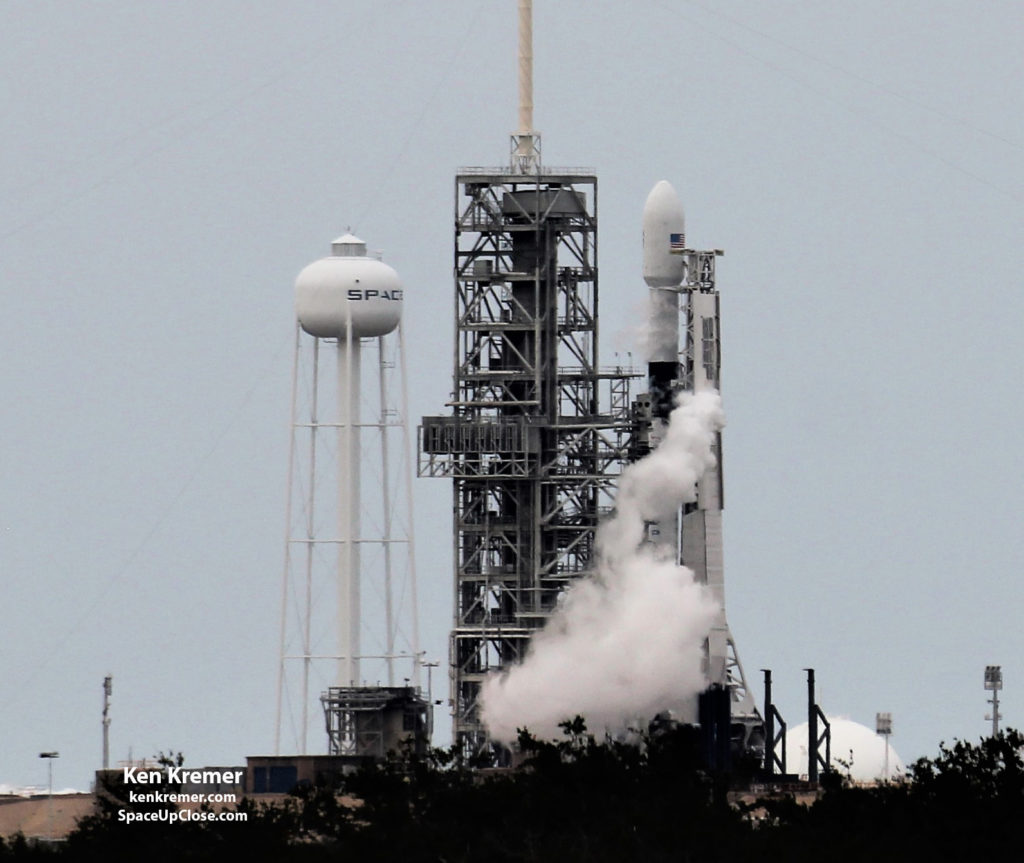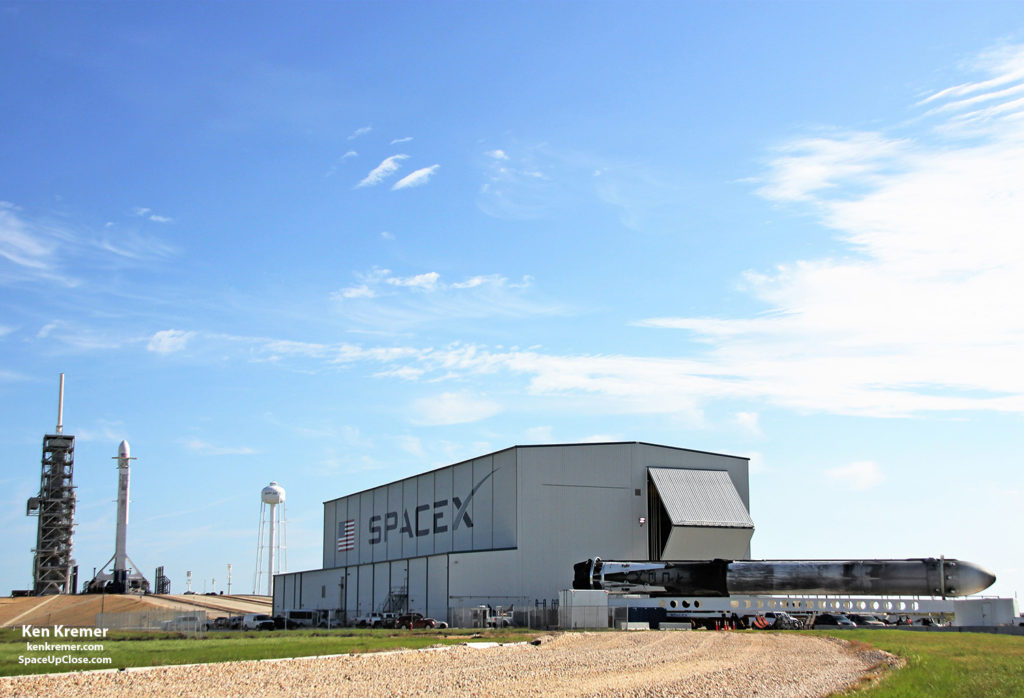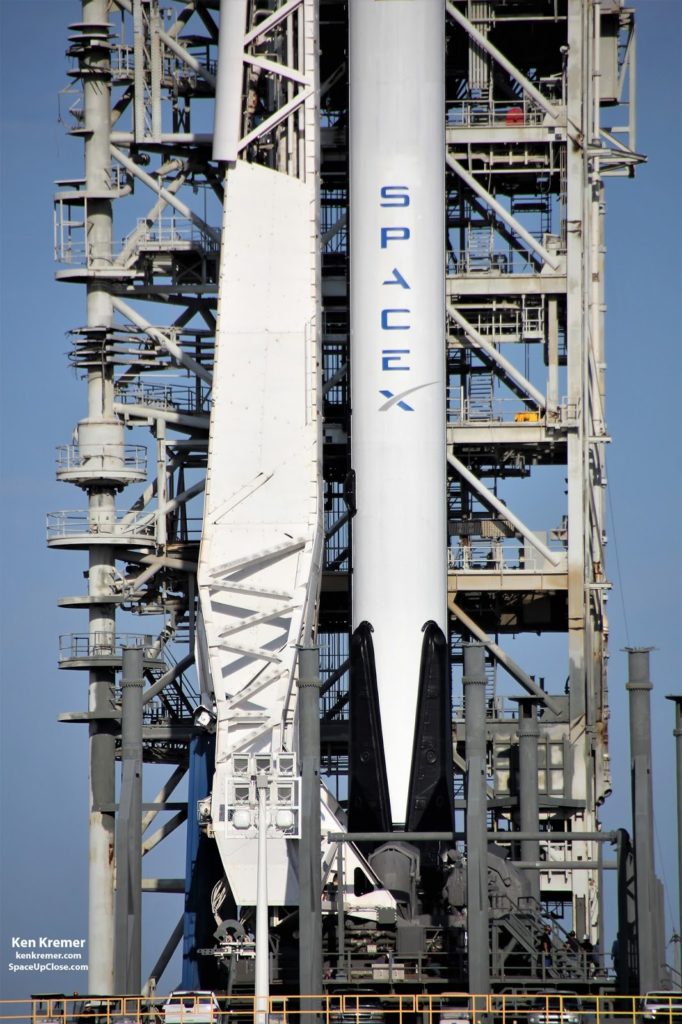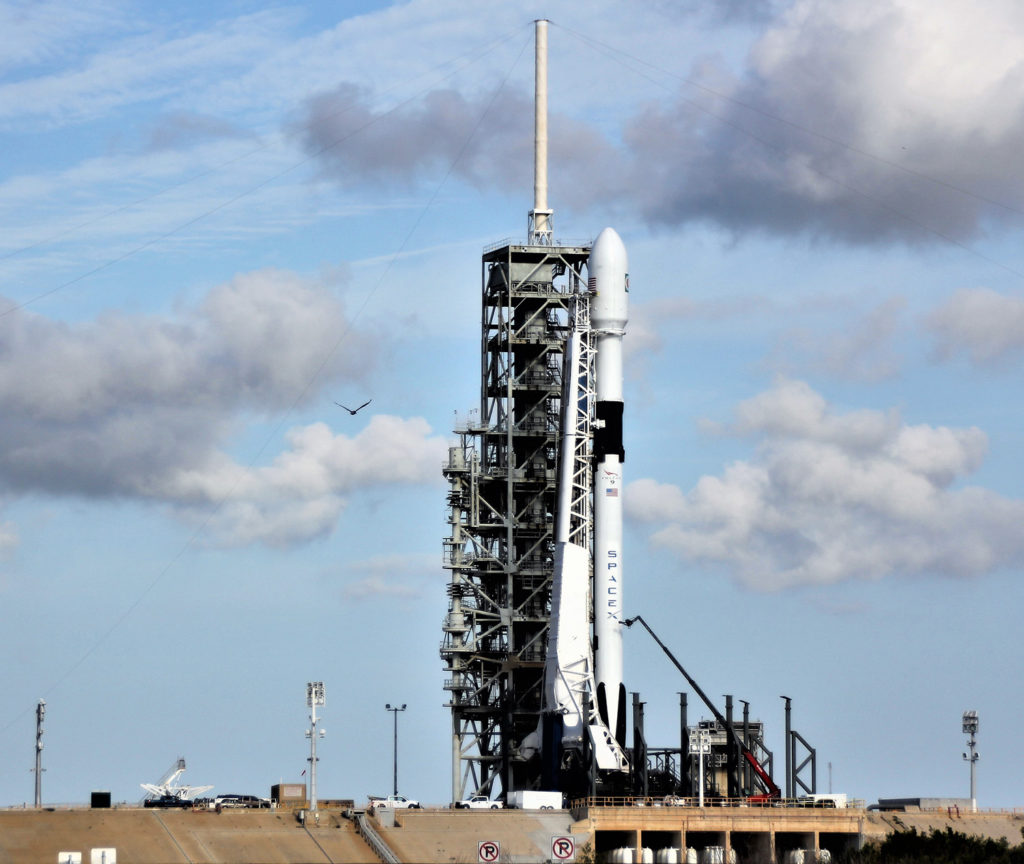— SpaceUpClose.com — 11 May 2018
FL – A technical glitch in the final
seconds of the countdown leading up to the first launch of the newly improved Falcon
9 Block 5 booster built by Elon Musk’s SpaceX aborted Thursday’s planned May 10
blastoff from the Florida Space Coast with Bangabandhu-1; the the 1st ever
geostationary communications satellite for the nation of Bangladesh.
rescheduled to Friday afternoon, May 11.
automatically at T Minus 45 seconds due to a “standard ground
system auto abort” SpaceX said later after the 22-story tall rocket had been fully fueled and was vigorously
venting vaporized liquid oxygen propellant in its gaseous form from the second
stage.
seaside Launch Complex 39A at NASA’s Kennedy Space Center (KSC) in Florida has
been reset to Friday afternoon, May 11, after SpaceX engineers reviewed the
telemetry.
system auto abort at T-1 min,” SpaceX tweeted.
are working towards tomorrow’s backup launch opportunity at 4:14 p.m. EDT, or
20:14 UTC.”
slightly over two hours; opening at 4:14 p.m. EDT (2014 GMT) and closing at 6:21 p.m. EDT (2221
GMT).
major upgrade to the Falcon 9 is dubbed the Block 5 version. The rocket on pad
39A is the first built Block 5 rocket.
telecon SpaceX CEO Elon Musk says numerous improvements built onto the Block 5
Falcon 9 will significantly increase the reliability and reusability of the
Falcon 9 including faster turnaround with less maintenance and fewer
refurbishments.
any appreciable maintenance or refurbishments.
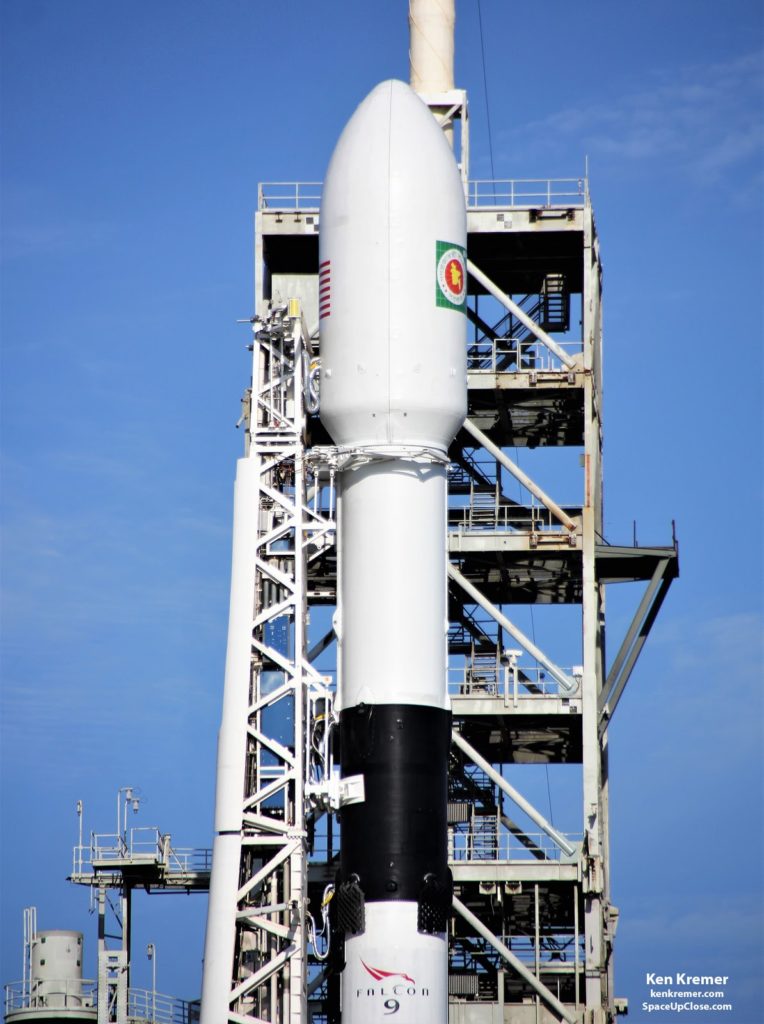 |
|
Up close nose
cone and grid fin view of first upgraded SpaceX Block 5 Falcon 9 booster ahead of planned with Bangabandhu-1 geocomsat for Bangladesh on Launch Complex 39A at NASA’s Kennedy Space Center (KSC) in Florida, reset to May 11. Credit: Ken Kremer/kenkremer.com/spaceupclose.com |
favorable. The official forecast issued last night by the U.S. Air Force’s 45th
Weather Squadron indicates a 70% chance of favorable weather conditions at
launch time, compared to 60% earlier.
favorable weather conditions at launch time. The primary concern remains for
the Thick Cloud Layer Rule and Cumulus Cloud Rule.
ULA, Boeing, Lockheed Martin, Orbital ATK and more space and mission
reports direct from the Kennedy Space Center, Cape Canaveral Air Force Station,
Florida and Wallops Flight Facility, Virginia.
Earth and Planetary science and human spaceflight news: www.kenkremer.com –www.spaceupclose.com –
twitter @ken_kremer – ken
at kenkremer.com


